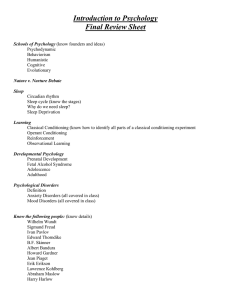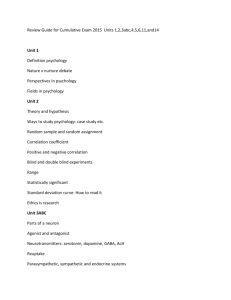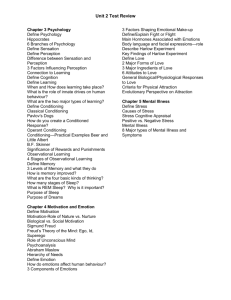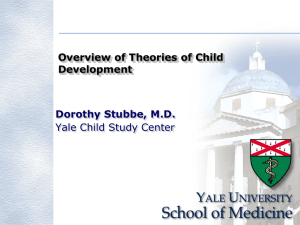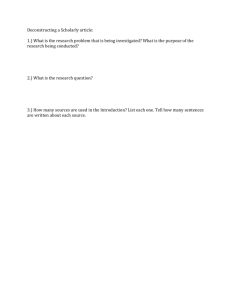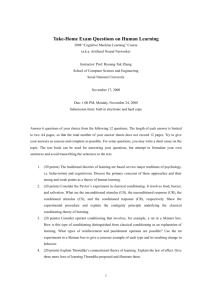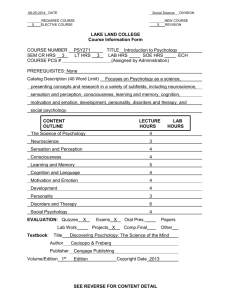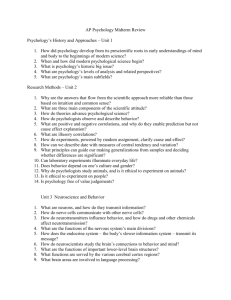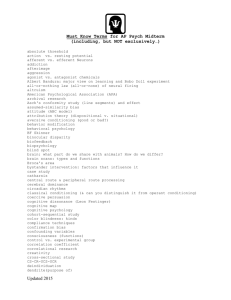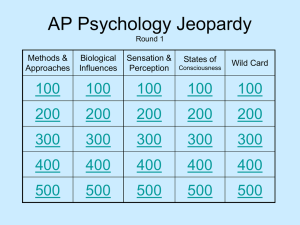Semester 1 Final Review Guide
advertisement
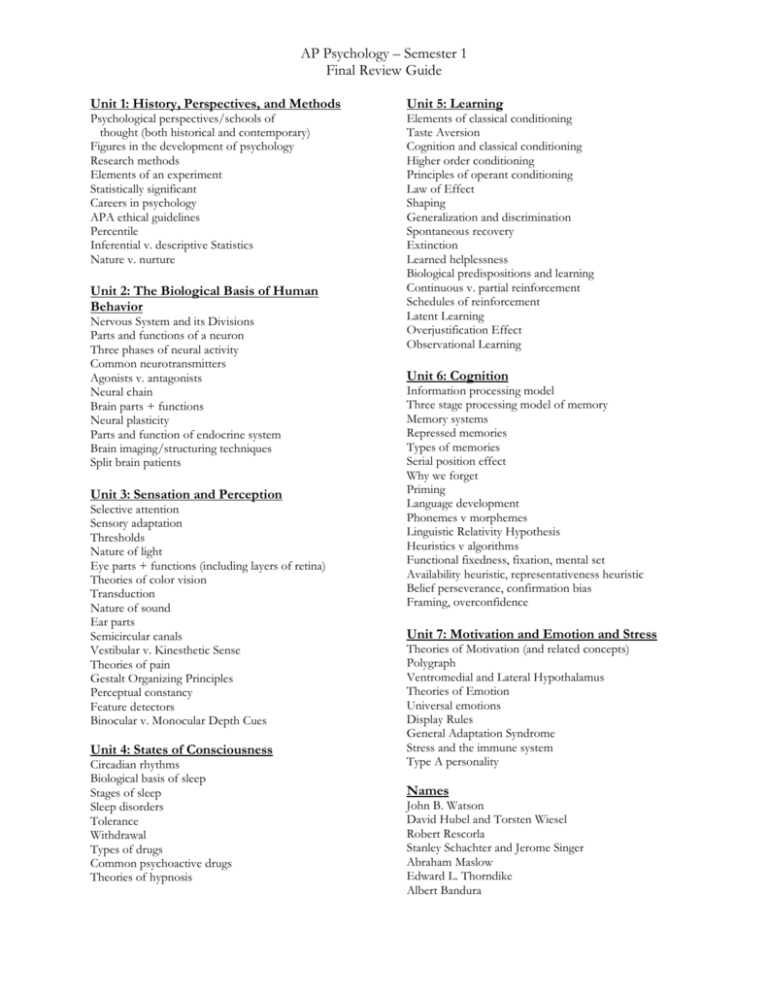
AP Psychology – Semester 1 Final Review Guide Unit 1: History, Perspectives, and Methods Psychological perspectives/schools of thought (both historical and contemporary) Figures in the development of psychology Research methods Elements of an experiment Statistically significant Careers in psychology APA ethical guidelines Percentile Inferential v. descriptive Statistics Nature v. nurture Unit 2: The Biological Basis of Human Behavior Nervous System and its Divisions Parts and functions of a neuron Three phases of neural activity Common neurotransmitters Agonists v. antagonists Neural chain Brain parts + functions Neural plasticity Parts and function of endocrine system Brain imaging/structuring techniques Split brain patients Unit 3: Sensation and Perception Selective attention Sensory adaptation Thresholds Nature of light Eye parts + functions (including layers of retina) Theories of color vision Transduction Nature of sound Ear parts Semicircular canals Vestibular v. Kinesthetic Sense Theories of pain Gestalt Organizing Principles Perceptual constancy Feature detectors Binocular v. Monocular Depth Cues Unit 4: States of Consciousness Circadian rhythms Biological basis of sleep Stages of sleep Sleep disorders Tolerance Withdrawal Types of drugs Common psychoactive drugs Theories of hypnosis Unit 5: Learning Elements of classical conditioning Taste Aversion Cognition and classical conditioning Higher order conditioning Principles of operant conditioning Law of Effect Shaping Generalization and discrimination Spontaneous recovery Extinction Learned helplessness Biological predispositions and learning Continuous v. partial reinforcement Schedules of reinforcement Latent Learning Overjustification Effect Observational Learning Unit 6: Cognition Information processing model Three stage processing model of memory Memory systems Repressed memories Types of memories Serial position effect Why we forget Priming Language development Phonemes v morphemes Linguistic Relativity Hypothesis Heuristics v algorithms Functional fixedness, fixation, mental set Availability heuristic, representativeness heuristic Belief perseverance, confirmation bias Framing, overconfidence Unit 7: Motivation and Emotion and Stress Theories of Motivation (and related concepts) Polygraph Ventromedial and Lateral Hypothalamus Theories of Emotion Universal emotions Display Rules General Adaptation Syndrome Stress and the immune system Type A personality Names John B. Watson David Hubel and Torsten Wiesel Robert Rescorla Stanley Schachter and Jerome Singer Abraham Maslow Edward L. Thorndike Albert Bandura AP Psychology – Semester 1 Final Review Guide Ivan Pavlov B.F. Skinner Wilhelm Wundt William James E.B. Tichener Sigmund Freud Michael Gazzaniga Helmholtz and Young Ernst Weber Ernest Hilgard Herman Ebbinghaus Elizabeth Loftus Noam Chomsky Kahnerman and Tversky Benjamin Whorf Abraham Maslow Paul Ekman Walter Cannon and Philip Bard William James and Carl Lange Stanley Schachter and Jerome Singer Hans Selye
